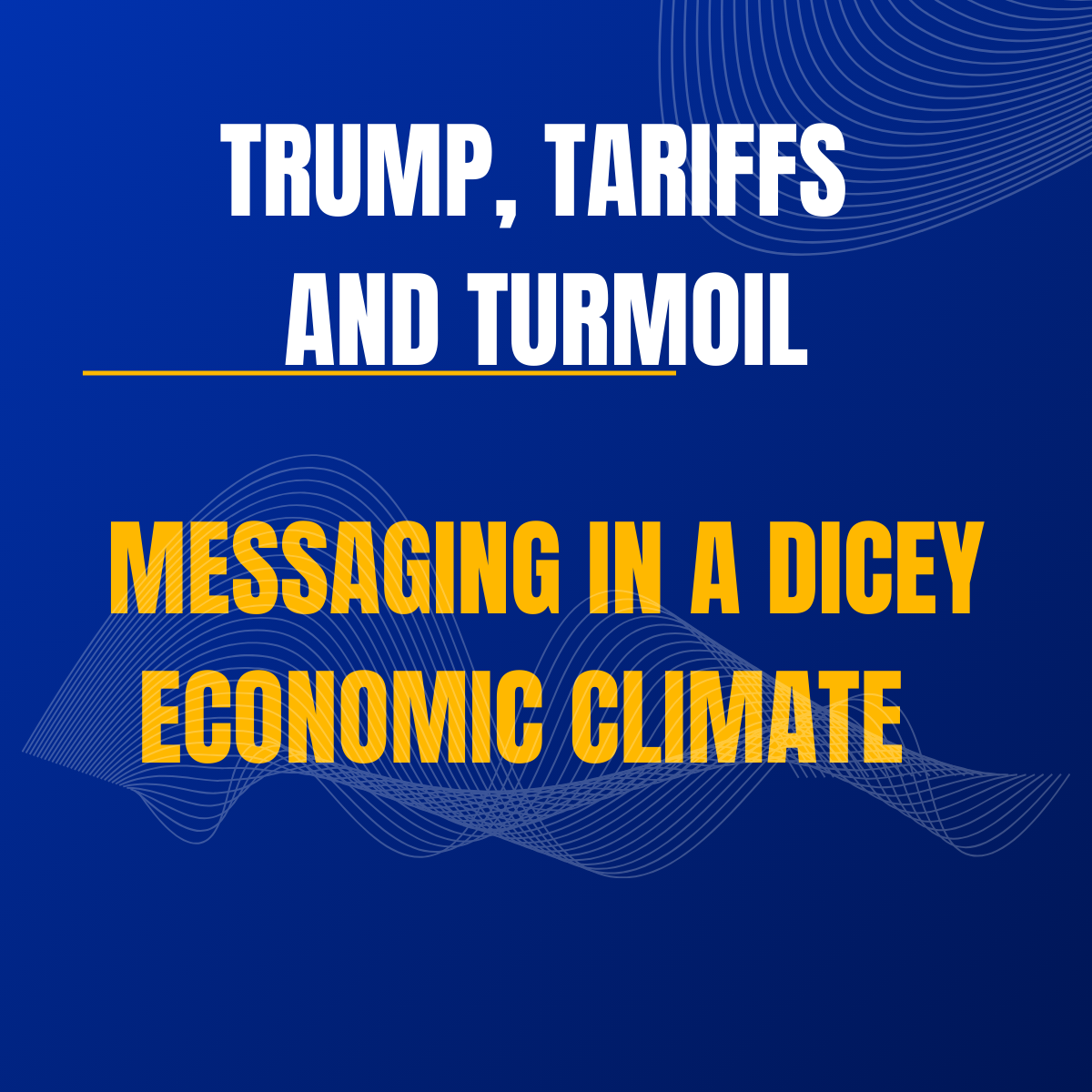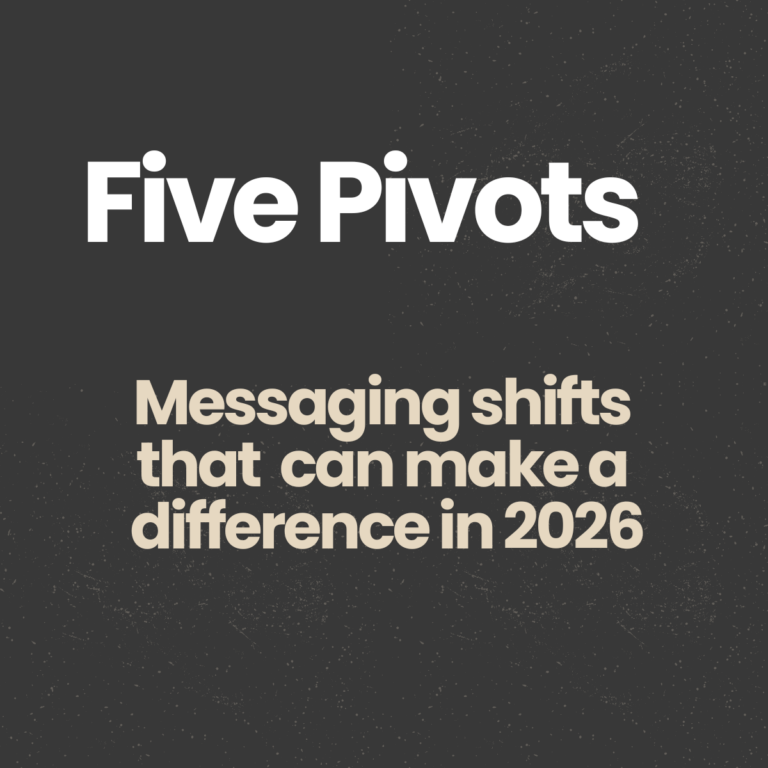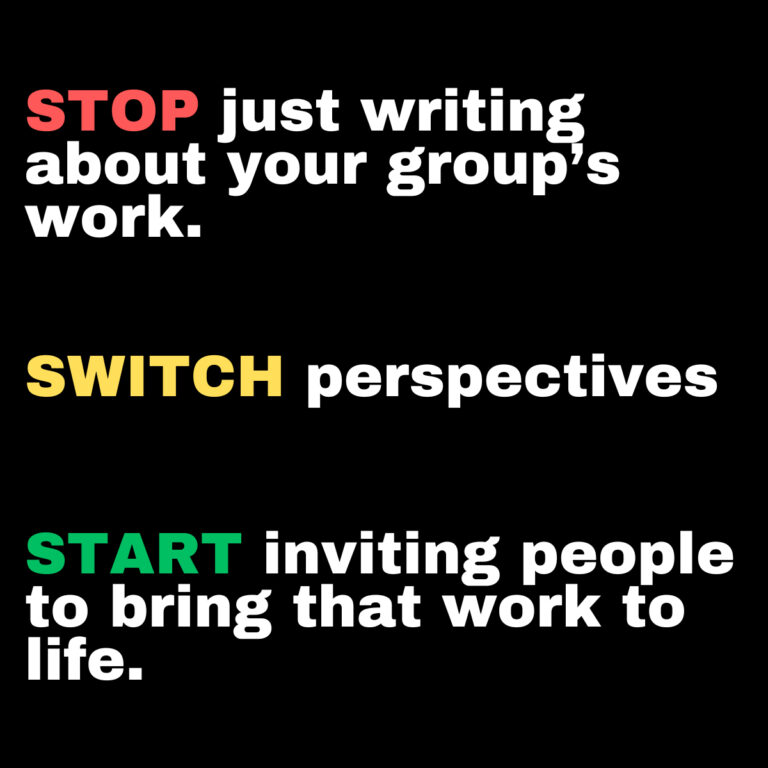And now this. Add economic upheaval and personal financial jeopardy to the mix. As if nonprofits and their supporters weren’t already facing enough confusion and chaos, here comes Trump, tariffs and economic turmoil.
So, let’s talk about how all this is likely to play out in the weeks and months ahead. And, more importantly, what we can say and do in the face of this new round of challenges.

Here’s how a recent Huffington Post article put it: “Economists have some advice for Americans who have been worried about President Donald Trump’s trade war potentially tanking the economy: Keep worrying.”
Judgments about the lasting impact of the tariff-driven crisis have bounced all over the place in the past week. But guessing that Trump has learned his lesson and will now proceed with caution and consistency is a really bad bet. Chances are, we will be dealing with peoples’ concerns about the overall economy and their own financial security for some time to come. And the economic instability is heightened because it’s occurring in a stunningly chaotic overall climate.

This isn’t a dilemma limited to the political and advocacy world. Economic worries are likely to color the philanthropic decision-making of people all across the nonprofit landscape. It could affect the timing and size of many peoples’ gifts. That includes not only those squeezing support for causes they care about into tight monthly budgets, but also those living more comfortably at the moment but worried about their shrinking 401(k)s and other assets.
And, as discussed below, economic uncertainty may also impact which causes people choose to invest in – and which commitments they choose to let slide.

Whenever the economic situation gets a little dicey, I always advise groups to use donor research to understand the impact on various audiences. Two questions are central to that research. How optimistic are you about the future of the economy in general? And how optimistic are you about your own financial future?
It’s the second question that tends to guide donor behavior. People are inclined to be quite generous when they see others dealing with economic hardship but are confident about their own financial security.
But when the economic risks hit closer to home, folks become naturally more cautious. If Trump drives the economy into the ground, that personal impact on each of your audiences is the metric to keep an eye on.
Now let’s discuss how groups can deal with the economic uncertainty we’re confronting.

There’s a certain irony at the heart of the economic turmoil Trump is singlehandedly creating – one that’s a little uncomfortable to even discuss.
In the current context, bad news economically can be good news politically.
More than anything else he has done in his first 100 days, Trump’s tariff craziness seems to be severely weakening his political standing. Indeed, one of the reasons he backed off so quickly on his massive so-called “reciprocal” tariffs is that the economy and, with it, his political strength were on the path to cratering.
So, we could see a very strange “bad news/good news” dynamic as events unfold.
Economic concerns that tend to constrain peoples’ support could be, at least in part, offset by a jolt of energy at seeing Trump start to flounder.
That doesn’t call for an unseemly celebration of economic hardship. But it does suggest clear communications about just how profoundly Trump is disrupting peoples’ lives.

If people do get to a place where they feel the need to scale back on their giving, donor behavior in past economic crises provides a clue as to what we will see.
It’s not likely to be a level across-the-board scaling back. Donors will start to zero in on their most cherished priorities and will let go of what they consider more marginal commitments.
Here are three key ways to respond:
- Emphasize your most concrete, “can’t wait” projects
- Avoid introducing new “grand scheme” initiatives
- Stick to your core work – the elements that people
know you for and most appreciate

One final piece of advice. In situations like this, groups are sometimes drawn to directly addressing the economic challenges people are facing. I’m talking about language like this. “We know that Trump’s reckless policies are creating financial difficulties for people all across our nation. We hope you are doing well, but whatever your circumstances, we urge you to recognize the urgency of this moment and dig deep.”
The thought, I believe, is that it’s authentic and transparent for a group to communicate like this. But here’s the rub. It violates a cardinal rule of persuasive communications: Never raise a barrier you can’t dispose of. If you say “I know you’re hard-pressed right now,” the most likely response isn’t “Yes I am but I will look past that.” The far more likely response is “You’re right. Good point. I better hold off.”

It’s hard to predict where Trump will take our economy in the weeks ahead. But hopefully these thoughts will help you prepare for the possibility that economic turmoil will add to the chaos and confusion he seems determined to bring about.









